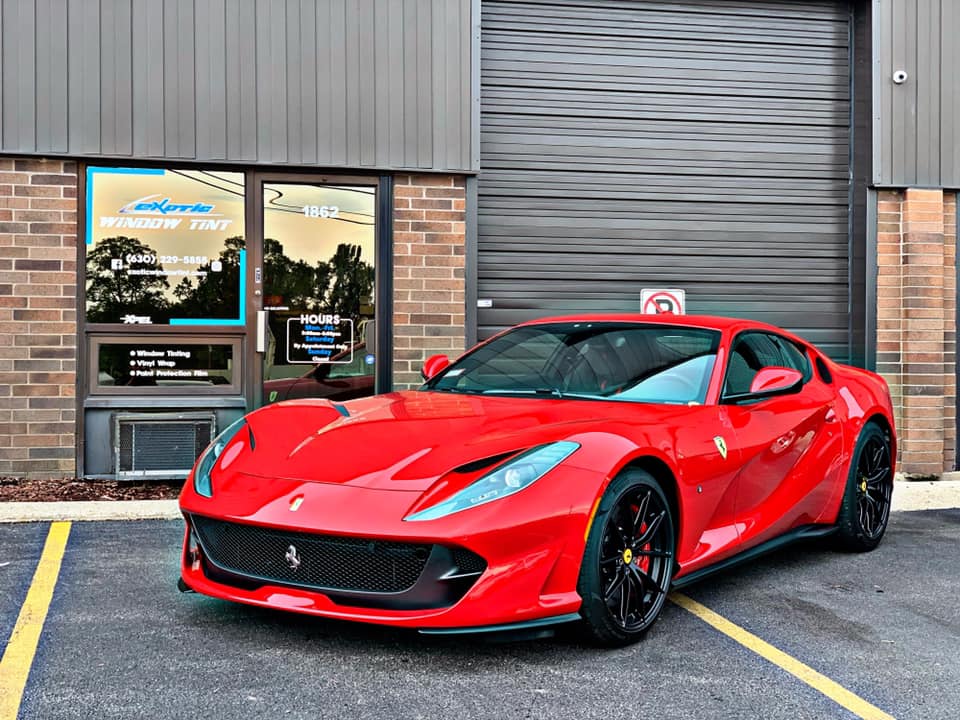How Much Does Window Tinting Cost?
Window tinting is a popular way to enhance the look and privacy of your vehicle while also providing some additional benefits like reducing heat and UV rays. However, many people are curious about the cost of window tinting. Let's explore some commonly asked questions regarding the cost of window tinting.
1. What factors influence the cost of window tinting?
The cost of window tinting can vary depending on several factors, including:
- The type of vehicle: The size and shape of the windows in different vehicles can affect the complexity of the tinting process and, consequently, the cost.
- The tinting material: There are different types of window tinting films available, ranging in quality and price. High-quality films usually come with a higher price tag.
- Location: Window tinting prices may vary depending on the location and availability of professional tinting services.
2. How much does it typically cost to tint car windows?
The cost of tinting car windows can vary depending on the factors mentioned above, but on average, you can expect to pay between $100 and $400. However, keep in mind that prices may vary based on your location and the specific requirements of your vehicle.

3. Will the cost of window tinting vary for different types of vehicles?
Yes, the cost of window tinting can vary based on the type of vehicle you own. Window tinting for larger vehicles, such as SUVs or vans, may cost more compared to smaller cars. The size and shape of the windows play a role in determining the amount of tinting material needed and the complexity of the installation process.
4. What are the benefits of choosing a high-quality window tinting film?
Opting for a high-quality window tinting film may result in a higher upfront cost, but it offers several benefits, including:
- Increased UV protection: High-quality window tints can block a significant amount of harmful UV rays, protecting your skin and interior from damage.
- Better heat reduction: Premium films often have superior heat reduction properties, keeping your vehicle cooler during hot weather.
- Enhanced longevity: Higher-quality films are more durable and resistant to fading, peeling, and bubbling, providing a longer lifespan for your tinted windows.
5. Are there any additional costs associated with window tinting?
While the main cost of window tinting involves the film and installation, there might be some additional expenses to consider, such as:
- Removal of existing tint: If you have old tinting film that needs to be removed before applying a new one, there may be an additional cost for the removal process.
- Upgrades and customization: If you prefer additional features like colored or reflective tints, those may come at an extra cost.
6. Can I install window tinting myself to save money?
Window tinting requires skill and expertise to achieve a professional and flawless result. While DIY kits are available, it's recommended to hire a professional tinting service. They have the necessary tools, experience, and knowledge to ensure proper installation and avoid any issues like bubbles or creases that can occur with DIY approaches.
7. Does the darkness of the tint affect the cost?
In most cases, the darkness of the tint does not significantly impact the cost of window tinting. The cost is generally determined by the factors mentioned earlier, such as the type of vehicle and tinting material used. However, certain specialized tints or unique customization options may have varying prices.
8. How long does window tinting typically last?
The lifespan of window tinting largely depends on the quality of the film, the climate conditions, and how well it is maintained. On average, high-quality window tinting can last anywhere between 5 to 10 years or even longer. Proper care and maintenance, including regular cleaning using appropriate methods, can help extend the lifespan of the tint.
9. Can window tinting be removed or replaced?
Yes, window tinting can be removed or replaced. However, it is recommended to have it done by a professional to avoid any damage to the windows. If you wish to remove the tint and replace it with a new one, a professional tinting service can safely remove the existing film and install a fresh one.
10. Does window tinting affect the visibility through windows?
Window tinting films are available in different levels of darkness, typically measured as a percentage of visible light transmission (VLT). Legal requirements regarding VLT percentages may vary by location. It is important to choose a tint that complies with local regulations to ensure maximum visibility and safety while driving.
11. Can window tinting help to protect the interior of my vehicle?
Yes, window tinting offers some level of protection to the interior of your vehicle. By blocking a significant amount of UV rays, it helps prevent fading and damage to your upholstery, dashboard, and other interior components caused by prolonged exposure to sunlight.
12. Are there any legal restrictions or regulations regarding window tinting?
Yes, window tinting is subject to legal restrictions and regulations that vary by jurisdiction. These regulations typically define the maximum darkness allowed for different windows of a vehicle. It is essential to familiarize yourself with the specific tinting laws in your area before getting your car windows tinted.
In conclusion, the cost of window tinting can vary based on factors such as the type of vehicle, tinting material used, and location. It is recommended to opt for high-quality films to enjoy the benefits of increased UV protection, heat reduction, and longevity. While there may be additional costs associated with removal or customization, hiring a professional tinting service ensures a flawless installation. It is crucial to adhere to legal regulations and choose an appropriate tint darkness level to maintain visibility and comply with the law.
